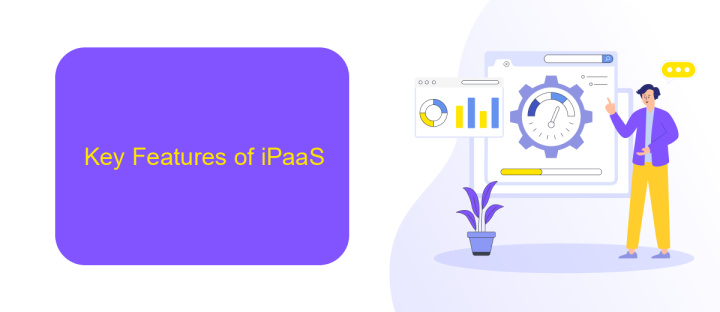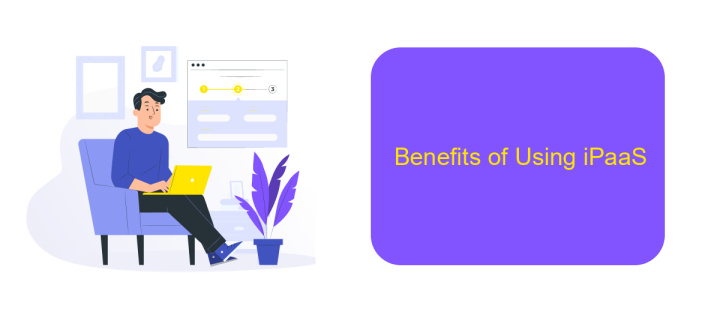iPaaS Options
In today's rapidly evolving digital landscape, Integration Platform as a Service (iPaaS) solutions have become essential for businesses seeking seamless connectivity between diverse applications and data sources. This article explores various iPaaS options available, highlighting their features, benefits, and potential use cases to help organizations make informed decisions on optimizing their integration strategies.
Introduction
In today's rapidly evolving digital landscape, businesses are increasingly relying on Integration Platform as a Service (iPaaS) solutions to streamline their operations and enhance connectivity between disparate systems. iPaaS options provide a comprehensive suite of tools that facilitate seamless data integration, enabling organizations to automate workflows and improve efficiency.
- Automated data synchronization
- Scalability and flexibility
- Real-time integration
- Enhanced data security
One noteworthy iPaaS provider is ApiX-Drive, which offers a user-friendly platform for setting up and managing integrations without requiring extensive technical expertise. By leveraging ApiX-Drive, businesses can effortlessly connect various applications and services, ensuring smooth data flow and operational harmony. The platform's intuitive interface and robust features make it an ideal choice for organizations looking to optimize their integration processes.
Key Features of iPaaS

Integration Platform as a Service (iPaaS) offers a range of key features that streamline the process of connecting disparate systems and automating workflows. One of the primary features is its ability to support multiple integration patterns, including real-time, batch, and event-driven integrations. This flexibility allows businesses to tailor their integration strategies to meet their specific needs. Additionally, iPaaS solutions often come with pre-built connectors and templates, which significantly reduce the time and effort required to set up integrations. These connectors can link various applications, databases, and services, ensuring seamless data flow across the organization.
Another critical feature of iPaaS is its user-friendly interface, which enables both technical and non-technical users to design, deploy, and manage integrations with ease. Platforms like ApiX-Drive exemplify this by offering intuitive drag-and-drop tools and automated workflows. Security is also a paramount concern, and iPaaS platforms typically include robust security measures such as data encryption, access controls, and compliance with industry standards. Furthermore, scalability is a significant advantage, as iPaaS can handle increasing data volumes and integration complexity without compromising performance. These features collectively make iPaaS an indispensable tool for modern businesses looking to enhance their operational efficiency and agility.
Types of iPaaS

Integration Platform as a Service (iPaaS) solutions come in various types, each catering to specific business needs and integration requirements. Understanding these types can help organizations choose the right tool for their integration challenges.
- Cloud-based iPaaS: These platforms are hosted in the cloud and offer scalability, flexibility, and ease of use. They are ideal for businesses looking to integrate cloud applications and services.
- On-premises iPaaS: Designed for organizations that need to keep their data within their own data centers due to regulatory or security concerns. These platforms offer robust integration capabilities while maintaining data control.
- Hybrid iPaaS: Combining the best of both cloud and on-premises solutions, hybrid iPaaS allows businesses to integrate applications and data across different environments seamlessly.
- Industry-specific iPaaS: Tailored to meet the needs of specific industries, these platforms offer pre-built connectors and workflows that address unique industry challenges.
For businesses seeking an efficient and user-friendly iPaaS solution, ApiX-Drive is a noteworthy option. It simplifies the integration process with its intuitive interface and extensive library of pre-built connectors, making it easier for organizations to automate workflows and synchronize data across various applications.
Benefits of Using iPaaS

Using an Integration Platform as a Service (iPaaS) offers numerous benefits for businesses seeking to streamline their operations. One of the key advantages is the ability to integrate various applications and data sources seamlessly, reducing manual processes and enhancing productivity.
iPaaS solutions provide a centralized platform for managing all integrations, making it easier to monitor and maintain them. This not only saves time but also reduces the risk of errors that can occur with manual data handling.
- Scalability: Easily scale your integrations as your business grows.
- Cost Efficiency: Reduce costs associated with manual integration and maintenance.
- Real-Time Data: Access up-to-date information across all integrated systems.
- Flexibility: Customize integrations to meet specific business needs.
Services like ApiX-Drive further enhance the benefits of iPaaS by offering user-friendly tools for setting up and managing integrations without the need for extensive technical knowledge. This makes it accessible for businesses of all sizes to leverage the power of automated workflows and data synchronization.
Considerations for Choosing an iPaaS
When selecting an iPaaS (Integration Platform as a Service), it's crucial to evaluate the platform's compatibility with your existing systems and applications. Ensure that the iPaaS supports a wide range of connectors and APIs, allowing seamless integration across various platforms. Consider the ease of use and the learning curve associated with the platform. A user-friendly interface and comprehensive documentation can significantly reduce the time and effort required to set up and manage integrations.
Another important consideration is the scalability and flexibility of the iPaaS. As your business grows, your integration needs will evolve, so choose a platform that can scale with your operations. Additionally, evaluate the platform's security features to ensure the protection of sensitive data during integration processes. Services like ApiX-Drive can be particularly useful, as they offer a robust set of tools for configuring integrations quickly and efficiently, making it easier to adapt to changing business requirements.


FAQ
What is iPaaS?
How does iPaaS benefit businesses?
Can iPaaS be used by non-technical users?
What kind of integrations can be set up with iPaaS?
Is iPaaS secure?
Apix-Drive is a universal tool that will quickly streamline any workflow, freeing you from routine and possible financial losses. Try ApiX-Drive in action and see how useful it is for you personally. In the meantime, when you are setting up connections between systems, think about where you are investing your free time, because now you will have much more of it.

